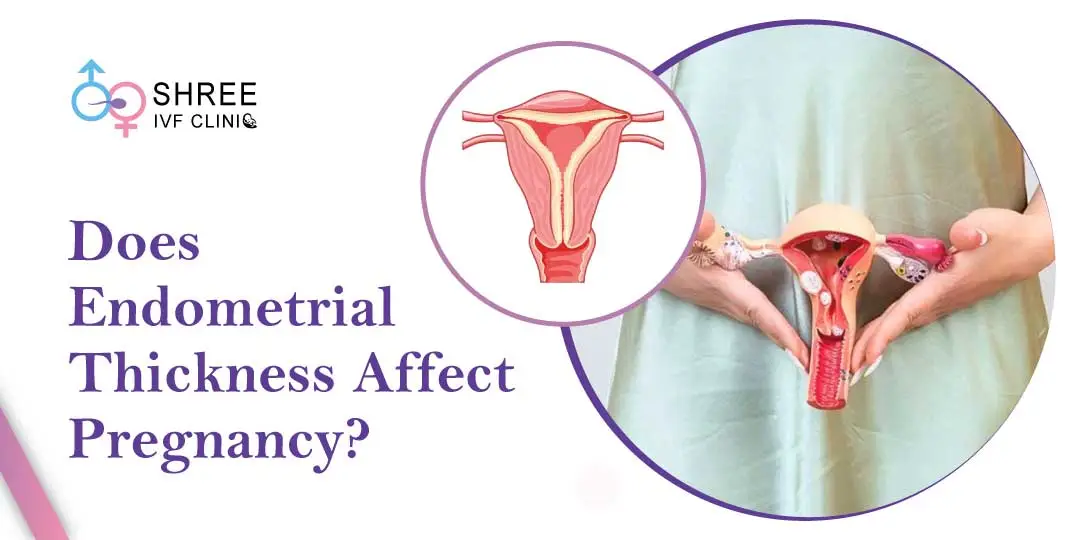How Common Is Recurrent Miscarriage?
UPDATED ON 8TH Nov. 2024
When couples start planning to have a baby, it’s usually a joyful experience. However, for some, this journey can be filled with heartbreak due to a condition known as recurrent miscarriage.
Let’s break down what recurrent miscarriage means, how often it happens, and what couples can do about it. We’ll explain everything in simple terms with empathy because this is a deeply emotional topic for many families.

AUTHOR
Dr Jay Mehta
Scientific Director & IVF Specialist with 10+ years of experience
CONDITION
Pregnancy
GET IN TOUCH ON
What Is Recurrent Miscarriage?
First, let’s understand what “miscarriage” means. A miscarriage is when a pregnancy ends on its own before the 20th week. It’s more common than people think. In fact, about 1 in 4 pregnancies end in miscarriage.
Now, recurrent miscarriage is when a woman has had two or more miscarriages in a row. Imagine wanting to build a tower with blocks, but each time you start stacking them, the tower collapses before you can get it high enough.
It’s frustrating and heartbreaking, especially when it happens over and over again. Recurrent miscarriage is like that — a couple starts building their hopes and dreams, but something happens, and the pregnancy ends before they get to bring home their baby.
How Common Is Recurrent Miscarriage?
Recurrent miscarriage is not as common as a single miscarriage, but it still affects many families. Around 1% to 2% of women experience recurrent miscarriage. That means out of every 100 women trying to have a baby, 1 or 2 might go through this heartbreaking experience.
Let’s imagine this like a classroom of 100 students. If everyone is raising their hands, 1 or 2 students might raise their hands to say they’ve experienced recurrent miscarriage. So while it’s not super common, it’s also not extremely rare.

4,790+
379K+
Why Does Recurrent Miscarriage Happen?
This is the big question that most people want to know: Why does this keep happening? Unfortunately, in about half of the cases, doctors can’t find a clear reason. It can be very confusing and frustrating for families.
But let’s discuss some of the known reasons:
1. Chromosome Problems
Think of chromosomes like instruction manuals for building a baby. Sometimes, these manuals have mistakes or missing pages. If the baby’s instruction manual has too many errors, the pregnancy may not continue. This is a common cause of miscarriage, especially in older women.
2. Hormonal Issues
Hormones are like traffic lights in our body, telling things when to stop and when to go. If the traffic lights aren’t working properly, the pregnancy might not progress as it should. Some women might not produce enough of a hormone called progesterone, which is needed to keep the pregnancy going.
3. Uterine Problems
Think of the uterus as the “home” where the baby grows. If there’s something wrong with the home, like if it’s shaped differently or has fibroids (small growths), it can make it harder for the baby to stay and grow.
4. Immune System Issues
Sometimes, a woman’s immune system might accidentally treat the pregnancy like a harmful intruder and attack it. This is similar to how the body fights off a cold or flu, but in this case, it’s attacking something that should be protected.
5. Blood Clotting Problems
In some cases, the blood that flows to the baby might form clots, which stops the baby from getting enough oxygen and nutrients. This can cause the pregnancy to end. This is like a pipe that gets clogged and stops water from flowing properly to a plant.
How Does It Feel to Go Through Recurrent Miscarriage?
Let’s take a moment to acknowledge that recurrent miscarriage is an incredibly difficult experience. It can feel like riding a rollercoaster of emotions. One minute, there’s excitement and hope, and the next minute, everything comes crashing down. For many couples, it feels like a never-ending cycle of hope and loss.
People often feel sad, guilty, or even angry. They might wonder if they did something wrong, but it’s important to remember: Miscarriages are rarely anyone’s fault. They happen for reasons that are often beyond our control.
It’s also common for couples to feel isolated, as though no one understands what they’re going through. But remember, as we mentioned earlier, 1 to 2 women out of every 100 have experienced this, so you’re not alone.
What Can Be Done About Recurrent Miscarriage?
The good news is that there are ways to try to help couples who are experiencing recurrent miscarriage. Think of this like being a detective trying to solve a mystery — doctors will look for clues to figure out what’s going wrong.
1. Testing
Doctors may run different tests to check for any issues with chromosomes, hormones, or the uterus. It’s like a mechanic checking a car to figure out why it’s not starting. They’ll test the engine, the fuel, and other parts to find out what’s wrong.
2. Treatments
If doctors find a problem, they can recommend treatments. For example:
- If there’s a hormone problem, a doctor might give hormone supplements to help support the pregnancy.
- If there’s a blood clotting issue, the woman may take medicine to thin the blood and help it flow better to the baby.
- If there’s a structural problem with the uterus, sometimes surgery can help.
3. Counseling and Support
Going through multiple miscarriages can take a toll on mental health. Couples often feel a lot of stress and anxiety. This is why counseling and support groups can be so helpful. It’s like having a support system of friends and family who can listen, comfort, and remind you that you’re not alone.
Get personalized support for recurrent pregnancy loss at Shree IVF & Endometriosis Clinic, where Dr. Jay Mehta will create the right treatment plan for you.
What’s the Outlook?
The good news is that most couples who experience recurrent miscarriage go on to have a healthy baby. With the right help, whether it’s testing, treatments, or just emotional support, many families do eventually have a successful pregnancy.
Final Thoughts
Recurrent miscarriage is a challenging experience, filled with emotional ups and downs. If you’ve gone through it or are currently going through it, know that it’s okay to feel a range of emotions — sadness, frustration, even anger. But also remember that there is hope. Many families who have struggled with recurrent miscarriages eventually hold their babies in their arms.
If you or someone experienced more than one miscarriage, it’s important to talk to a fertility specialist. Dr. Jay Mehta. He can help identify potential causes and guide you through possible treatments, giving you the best chance at a successful pregnancy. You’re not alone on this journey.
AUTHOR
Dr Jay Mehta
Scientific Director & IVF Specialist with 10+ years of experience
CONDITION
Pregnancy
CALL US 24/7 FOR ANY HELP
GET IN TOUCH ON
Share Article on
Recommended Reading
Endometriosis Thickness and Its Impact on Pregnancy
A good endometrial thickness (8-14 mm) is essential for pregnancy, especially in women with endometriosis. Learn how it impacts fertility and conception
Drinking in Early Pregnancy Without Knowing
Early pregnancy alcohol consumption raises risks of miscarriage and Fetal Alcohol Spectrum Disorders (FASD), affecting the baby’s health and development
Is Chickenpox Dangerous in Pregnancy?
Chickenpox in pregnancy is risky for the unvaccinated, yet if you’ve had it previously, your strong immune defenses protect both you and your baby




